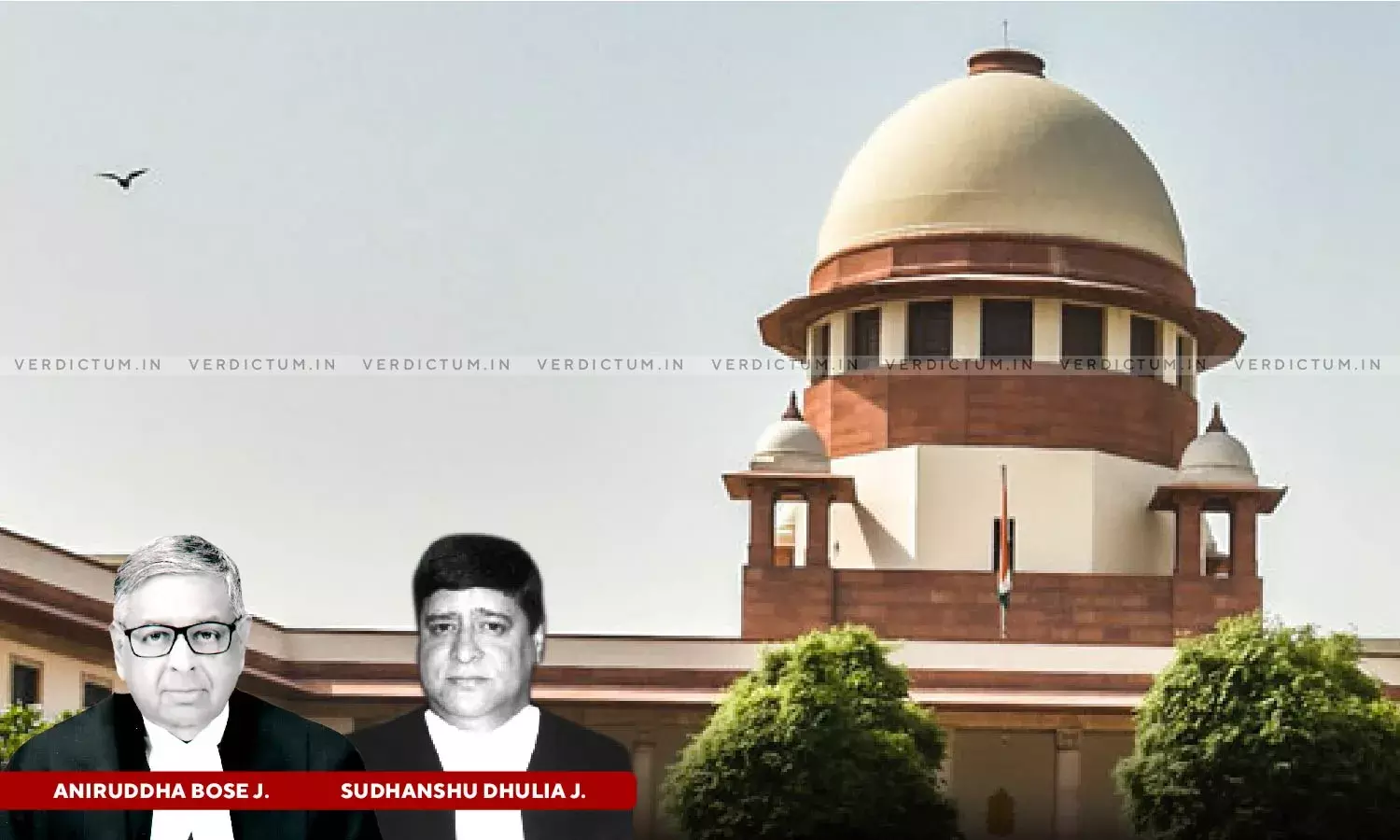Registrar Of Society Can Cancel Own Order Under WB Registration Act: SC In A Dispute Between 2 Groups Of Chinese Tannery Owners Over School Control

The Supreme Court has held that the Registrar of Society is empowered to grant registration under West Bengal Registration Act, 1961 and has power to cancel such registration.
A dispute arose between two groups of Chinese Tannery owners in Kolkata over the control of a school and the appellant i.e., the secretary of the school operated by the Chinese Tannery Owners’ Association had filed a civil appeal.
The two-Judge Bench of Justice Aniruddha Bose and Justice Sudhanshu Dhulia observed, “It has also been argued before us that Chinese Tannery Owners’ Association is the owner of the land where the subject school is located. On this point, we would add that in the event the respondents cannot demonstrate their right to run the school on the land owned by the said Association without their permission, that factor may also be taken into consideration by the Registrar and that could also be a ground for cancellation of registration. But any decision on that count shall be subject to final adjudication by the civil court if an action on that count is pending before the civil court.”
The Bench said that the impugned judgment does not suffer from any legal shortcoming warranting its interference.
Senior Advocate Siddhartha Mitra and Advocate Kunal Chatterji appeared for the appellant while Senior Advocate Rana Mukherjee and Advocate Daisy Hannah appeared for the respondents.
In this case, the root of dispute lied in a conflict between two groups of Chinese Tannery owners over the control of a school which came into existence in 1929 and operated out of a small hut in an area. Subsequently, the Chinese Tannery Owners’ Association in Kolkata set up the school on a large tract of land in a locality and as per the appellant, the school was moved to this location. The said association was registered as a society under the WB Registration Act. Dispute arose when the Registrar under the said statute granted certificate of registration in response to an application made by the respondents. The appellant contended that the said association had no connection whatsoever with the said school and the issue was initially raised with the Registrar by filing a complaint requesting cancellation of registration of the school as a society.
There were allegations of forgery and fabrication of signatures in the set of complaints and the disputes were taken to the civil court and criminal proceeding was also instituted. From the year 2011, there were several rounds of litigations by and between the rival parties and the order of the Registrar from which the proceeding originated was passed in pursuance of an earlier Division Bench judgment of the Calcutta High Court. In terms of the Clause 36 of the Letters Patent Act, 1865 of the Calcutta High Court, the matter was referred to a third Judge and the Referee Judge formulated two questions for answering the reference. On the point of power of the Registrar to cancel his own order, the Referee Judge’s judgment was under the appeal.
The Supreme Court after hearing the arguments of the counsel noted, “… it was not permissible for the Division Bench, and subsequently by the Referee Judge to re-examine the question as to the manner in which the Registrar had exercised his power. But we find that the Referee Judge has not addressed any issue already covered by the decision of the Division Bench delivered on 14.01.2016. The Division Bench has explained the position of law on the aspect of power of substantive review and procedural review. The Referee Judge has only applied the same principle to test the order of the Registrar.”
The Court added that the principle of constructive res judicata did not apply against the respondents and moreover, before the Referee Judge, the dispute centred around the decision taken by the Registrar after the Division Bench had delivered the judgment and it formed a fresh cause of action.
Accordingly, the Apex Court disposed of the appeal.
Cause Title- Chen Khoi Kui v. Liang Miao Sheng & Ors. (Neutral Citation: 2023INSC827)


